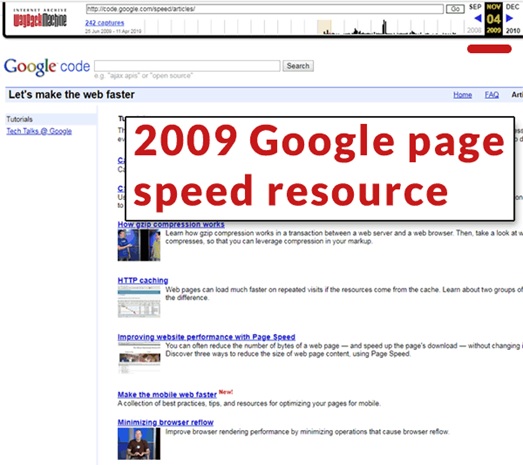 SEO Services
SEO Services
 Posted on November 27, 2019
Posted on November 27, 2019
 Posted in
SEO
Posted in
SEO
Increasing the page speed loading has never been a new challenge for the publishers. Google is continuously carrying on throwing this challenge to them for more than a decade. However, even after helpful resources created by Google for the same, the over year statistics shows something different! Instead of improving the loading time of the web pages is decreasing significantly over the years.
Different metrics are responsible for the page loading speed, and each of them has some effect on the various aspects of the loading speed. Their overall performance signifies the agility of the site. Naturally, it works as the prime determiner of the UX.
It’s a metric that figures out the time that a web page takes to produce interactivity, that is when a user clicks on/around the page, it responses accordingly. The Google Developers page states that JavaScript affects this metric. So, it is recommended to avoid the use of unnecessary JavaScript.
The recent archive statistics say that the average time of this metric has remained stable at 12.3 seconds.
The good part is, the metric is at least not deteriorated; however, it hasn’t improved though. Twelve seconds indicates the poor experience of the user. It can significantly affect the profits that come from affiliate marketing, ad impressions or product sales.
When it comes to desktop metrics, it has experienced a modest boost from 2.7 seconds to 3.3 seconds.

Time to be Interactive has shown notable progress if compared to the last year. In 2018’s April, it experienced a high of 18.8 seconds.

It computes the time of HTML document loading speed. It excludes the images and stylesheets. According to Mozilla documentation –
“The DOMContentLoaded event fires when the initial HTML document has been completely loaded and parsed, without waiting for stylesheets, images, and subframes to finish loading.”
This metric has come down from 10.1 seconds to 8.6 seconds, that’s an apparent deterioration of two seconds.

As per the leading search engines’ documentation, this metric heats in at the time of loading and parsing of the HTML documents. As stated before, it doesn’t wait for the subframes, images or stylesheets to load.
Apart from WordPress websites, the websites that have been created with Drupal are also facing this issue.

It has become a trend that every industry is experiencing. This is possibly not only for the Content Management Systems, but other aspects are accelerating this speed-related problem. The list includes advertisement scripts, ad tracking and more.
Most of the people are thinking that the increasing application of Content Delivery Networks will help in increasing the page loading speed; however, it’s a definite misconception.
It’s a metric that is responsible for measuring how long a site does take to load the contents of the webpage. However, it can’t detect the time that a webpage takes to perform interactivity. It only indicates the loading time of the page contents.
This is referred to a milestone by the developers from Google. As the name suggests, it works as the milestone that marks the event of loading content on any specific page. This holds the utmost importance because it indicates the time that a webpage will take to show up its content to the users.
As per the Data revealed by HTTP archive, at the initial months of 2019, the average metrics for the mobiles was detected as 6.3 seconds. That is, to visit a webpage’s content using the mobile, a visitor was required to wait for at least 6.3 seconds.
Here the question arises…
Well, if we go by statistics, the internet speed, specifically for mobile devices, has commendably increased by 10%-45% depending on the service provider.
As it is stated before, statistically, the speed of mobile internet has increased. Then it might be the mobile sites that are acting slow. If we go by the opinion of the developer’s page Google, the scripts, external stylesheets and other minizing file size-related aspects are responsible for impacting this specific metric.
To handle these issues, HTTP caching should be used to make repeated visits agile. Besides, optimizing the JavaScript boot-ups and reducing the payloads of the same can help in this. The optimizing encoding and transfer size assets should also be observed.
Google has been requesting publishers for the improvement of the page loading speed for a long time. They have come up with a lot of encouraging measures to boost up the rankings of the publishers by working on the improvisation of the page loading speed.

However, it looks like publishers are keeping on overlooking the matter since the inception of the concept. Indeed the internet has evolved, but the page loading speed is still a big concern.
The page loading speed holds the least importance when it comes to the SEO ranking factors. This might be the reason that the SEO community is neglecting to focus on this fact. However, if one thinks that a reasonable conversion rate is enough for surviving in the game of web existence, then it’s a partially correct concept.
The profit lies in beating the page loading speed of the competitors’ website. The fact to remember here is, visitors don’t like to wait more than 3 seconds to get a webpage loaded. Overlooking this will harm the publisher itself.
So, it’s always better to work on improving the page-load speed since it leads to generate more organic traffic towards your business web page. Naturally, it results in more conversion, thus more profit. So, the publishers who have not started working on the same should start it right away!